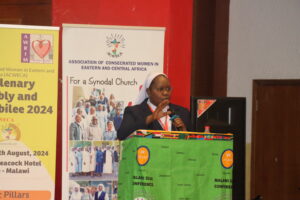TANZANIA: Sudan’s Bid to Join EAC Quashed
The Sudanese government faced a diplomatic setback after two countries rejected its application to join the East African Community (EAC), a newspaper reported today.
EAC is the regional intergovernmental organization comprised of Kenya, Uganda, Tanzania, Rwanda and Burundi with its headquarters in Arusha, Tanzania.
The Kampala-based Daily Monitor newspaper said that Uganda and Tanzania raised the flag citing concerns over Khartoum’s democratic practices and its treatment of women.
Last June, Sudanese president Omer Hassan al-Bashir wrote to Burundian President Pierre Nkurunziza, who is the EAC chairperson, requesting that his country be admitted to the bloc. Divisions within the member states on the request at the time forced a deferral of the decision to the upcoming EAC summit.
A Ugandan official revealed that during the EAC council of ministers meeting his country along with Tanzania raised objections.
“We rejected their application after looking at several issues like their democracy, the way they treat women and their religious politics and we feel they don’t qualify at all,” Eriya Kategaya, Uganda’s minister for East African Affairs said.
In June 2011, Sudanese president Omar Hassan al-Bashir wrote to the EAC chairperson, requesting that his country be admitted to the bloc. Article 3 (3) of the EAC charter stipulates that membership is contingent upon adherence to universally acceptable principles of good governance, democracy, the rule of law, observance of human rights and social justice.
Furthermore sharing joint borders is a requirement for the EAC membership which Sudan does not satisfy.
The final decision on Sudan’s application will be delivered on Wednesday when Ugandan President Yoweri Museveni, Paul Kagame of Rwanda, Mwai Kibaki of Kenya, Jakaya Kikwete of Tanzania and Pierre Nkurunziza of Burundi meet in the heads-of-state summit.
Uganda’s relations with Sudan have been strained for the last two years over the former’s support for south’s independence, position on the International Criminal Court (ICC) warrant for Bashir and hosting some Darfur rebel figures.
Just last month Sudan’s First Vice President Ali Osman Taha accused Musevini of seeking a regime change in Khartoum as part of his broader agendas to halt Arab advances in Africa.
Last week, the Ugandan president slammed Khartoum’s ‘Arabisation’ policies which he said led to South Sudan choosing to secede from the north.
South Sudan officially became an independent nation last July after its citizens voted in a referendum earlier this year overwhelmingly in favor of splitting from the north. The exercise was stipulated as part of the 2005 Comprehensive Peace Agreement (CPA) which ended more than two-decades of civil war.
Kategaya said a similar application by South Sudan to join EAC, which was submitted formally last week instead of the required six months ahead of the summit, was late and would instead be discussed next year.
SOURCE: Sudan Tribune


